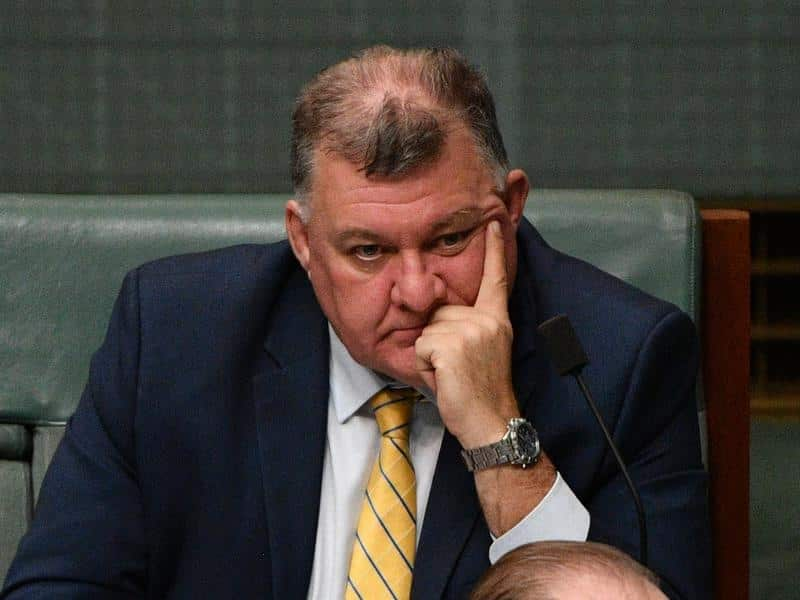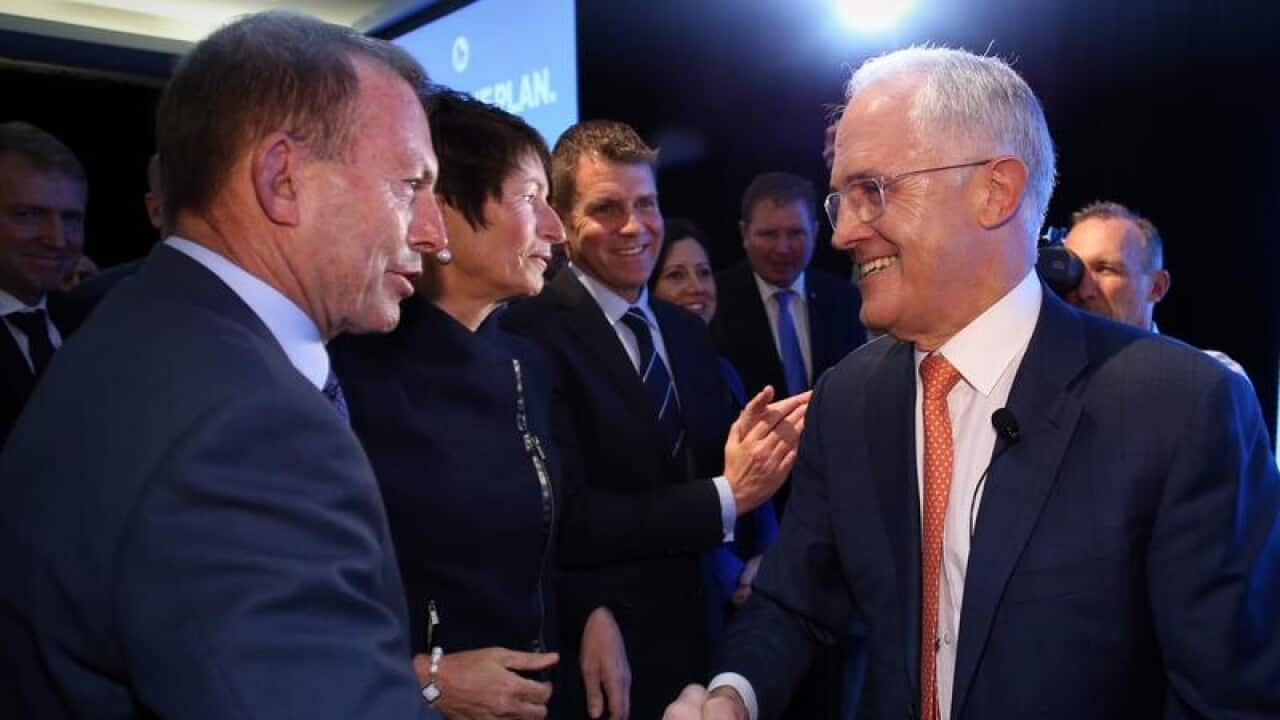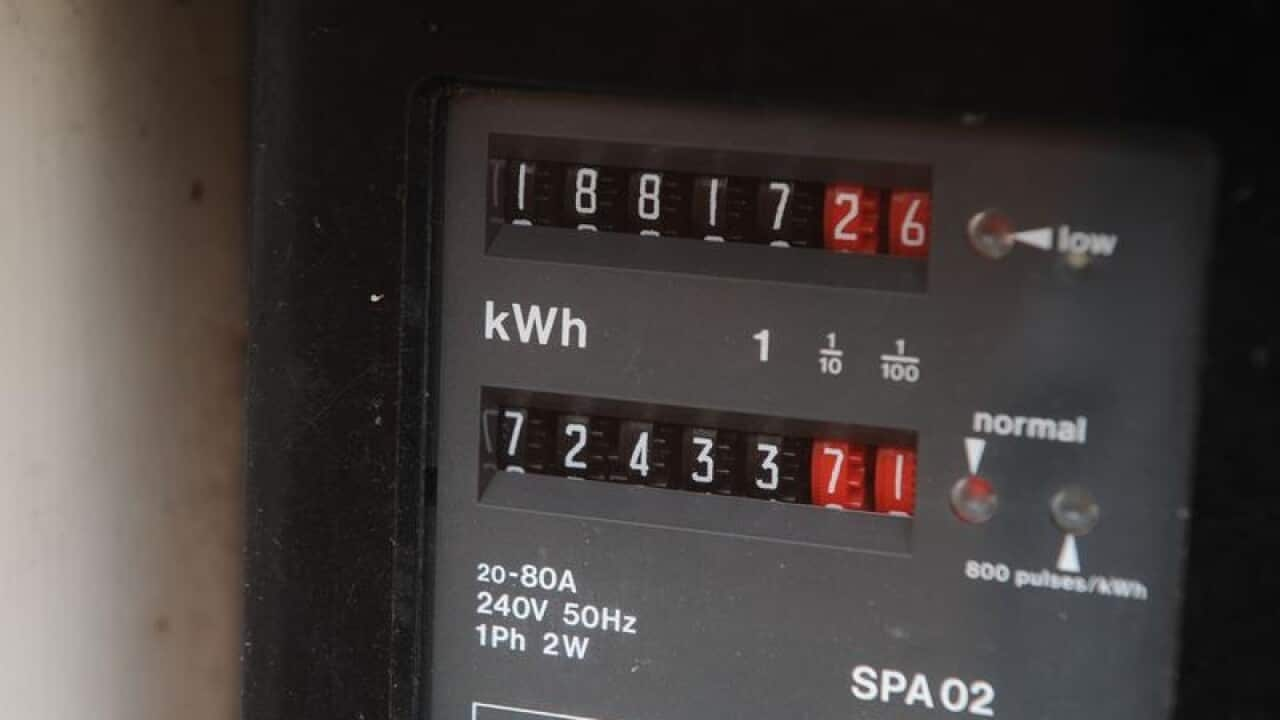Prime Minister Malcolm Turnbull says he has the “overwhelming” support of his backbench ahead of a key meeting with the states on a national energy plan, after Victoria promised to reject the deal unless the Coalition party room was united.
Liberal backbenchers Craig Kelly and Tony Abbott have openly advocated changes to the so-called National Energy Guarantee in recent weeks.
Mr Abbott blasted the government’s predictions for energy bill savings as “completely implausible”.
The two outspoken Liberal backbenchers and many in the Nationals want to see evidence the policy can drive new investment in coal-fired power stations.
But the prime minister insisted the government was mostly united on the plan.
“I can tell you it has overwhelming support of the party room,” Mr Turnbull told ABC Radio on Monday morning.
“I'm not sure what reservation Craig Kelly has.”
The prime minister insists the NEG is “technology agnostic” and could facilitate investment in all forms of power generation.
It would end existing subsidies for renewable energy to create a “level playing field”, the government says.

Liberal Member for Hughes Craig Kelly. Source: AAP
The system would force generators to cut their emissions by 26 per cent reduction by 2030, as well as meeting a “reliability” benchmark to prove they can keep up with spikes in demand.
Gas and coal-fired power are considered “dispatchable” power because they can be scaled up to meet demand, whereas solar and wind are contingent on the weather.
Renewables paired with batteries, however, including pumped hydropower, can count as dispatchable power.
Labor's shadow energy minister Mark Butler said there was a "concerted push" within the Coalition party room to torpedo the NEG.
Labor states want more ambitious climate targets
Federal energy minister Josh Frydenberg is hoping to break the impasse when he sits down with his state and territory counterparts in Sydney on Friday.
The Labor states – Queensland, Victoria and the ACT – are unhappy with the proposal to enshrine the 26 per cent target in legislation.
They would prefer a more flexible regulation that a future government could scale up to a more ambitious target – like the 45 per cent reduction championed by Bill Shorten’s federal team.
"There is a fundamental concern about Malcolm Turnbull’s apparent intention to tie the hands of future governments from expanding opportunities for renewable energy investment," Mr Butler said.
Victorian premier Daniel Andrews said he would not sign up while there was “significant doubt” that the policy would survive the Coalition’s internal processes.
“I think we’re right to say we want the Prime Minister to demonstrate he’s got the numbers in his own show before we start signing anything particularly jobs and more affordable power over to him,” Mr Andrews told The Australian.
Last week, Mr Frydenberg offered an “automatic review” of the target in 2024, four years after the NEG takes effect in 2020. The compromise has been met with a lukewarm response.
The prime minister said the meeting was a chance to finally end the national gridlock on climate change policy, which has persisted since the collapse of the Rudd government’s emissions trading scheme.
“This is the only opportunity we have on the table right now to deliver lower energy prices,” he said.
“Those state premiers, if any of them want to oppose the NEG, what they are saying is they want their citizens to pay more for electricity.”
A group of industry and employer groups have thrown their weight behind the policy.
“There can be no further delays. A decade of policy uncertainty has only resulted in higher electricity prices and a less stable and reliable energy system,” the joint statement read, signed by the Business Council, Farmers’ Federation and the Australian Energy Council, among others.



